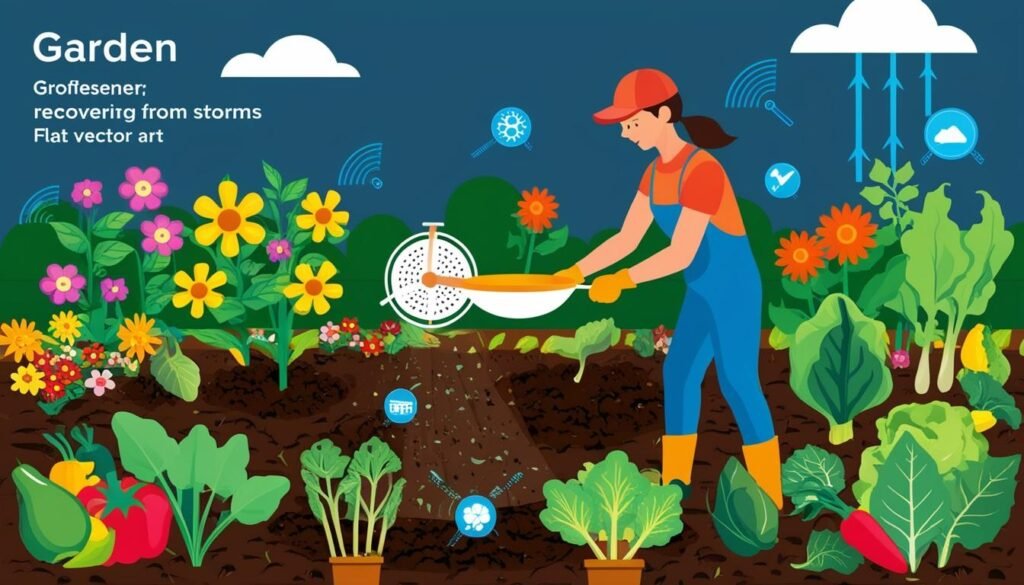In light of recent storms, gardeners are using creative methods like salad spinners to restore their gardens, while the Chelsea Flower Show prepares to unveil an AI-powered garden that showcases sustainable practices.
In the face of recent stormy weather conditions across the UK, gardeners are finding innovative ways to restore and maintain their gardens. A particularly interesting method gaining popularity involves the use of a common household item: the salad spinner. Retailing at just £4 from Ikea, this utensil is being repurposed as a gardening tool to help sift soil and remove debris that might have accumulated in flower beds during the storms. By utilizing the tiny holes of the salad spinner, gardeners can more efficiently clean and prepare their garden beds for planting, potentially increasing plant yield by ensuring the soil is free from large rocks and foreign objects.
The benefits of using a salad spinner extend beyond just cleaning; the method ensures the soil remains fine, enabling better root development and reducing the likelihood of plant damage. While this gardening hack is quite handy, it’s not deemed essential for all gardeners, yet offers a time-saving advantage for those who choose to employ it.
This seasonal shift also brings with it a list of other recommended gardening tasks for October. The Sun’s Gardening Editor, Veronica Lorraine, recommends a series of tasks to optimize gardens for the coming spring. Among these tasks are trimming deciduous hedges, making leaf mould from fallen leaves, planting spring bulbs, and mulching to suppress weeds and retain soil moisture. Planting hardy vegetables such as carrots, peas, and certain varieties of onions like ‘Radar’ can also be beneficial, promising a productive harvest come springtime.
October is an active period for planting, with peas and salad mixes being particularly favourable due to their resilience against cold weather. Gardeners have options to plant these directly into well-prepared soil or pots, while using cloches for protection during harsher weather conditions.
In another remarkable development in the gardening world, the Chelsea Flower Show is set to debut its first AI-powered garden. Designed by Tom Massey and in collaboration with Microsoft, the Avanade “intelligent” garden employs AI and sensor technology to interact with visitors. This garden uses sensors to measure moisture, nutrient levels, and soil pH, providing real-time feedback to its AI, which is trained on Royal Horticultural Society data. Visitors will be able to ask the garden questions such as its water needs, and the technology enables efficient resource management.
The innovation aims to showcase how AI can contribute to sustainable gardening practices, potentially offering applications for large estates by optimising water usage based on live soil data rather than scheduled watering. As London could face water shortages in the future, such technology could be instrumental in conserving resources.
Massey aims for the AI-powered garden to maintain a natural aesthetic with its design, incorporating climate-resilient trees and other green elements, while the RHS ensures that the energy consumption of the AI utilised is as efficient as possible. This innovative approach represents a melding of tradition with modern technology, paving the way for future developments in sustainable gardening.
Source: Noah Wire Services


